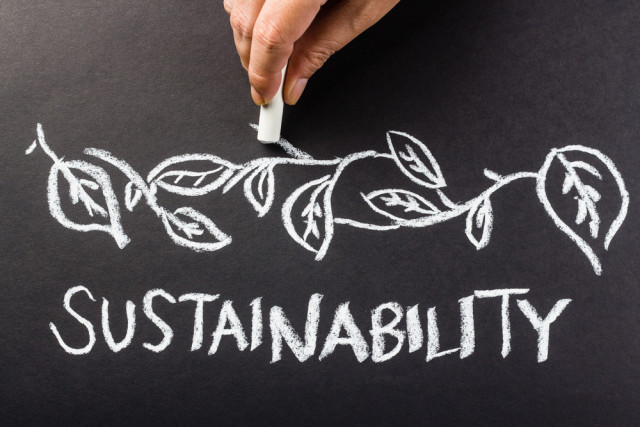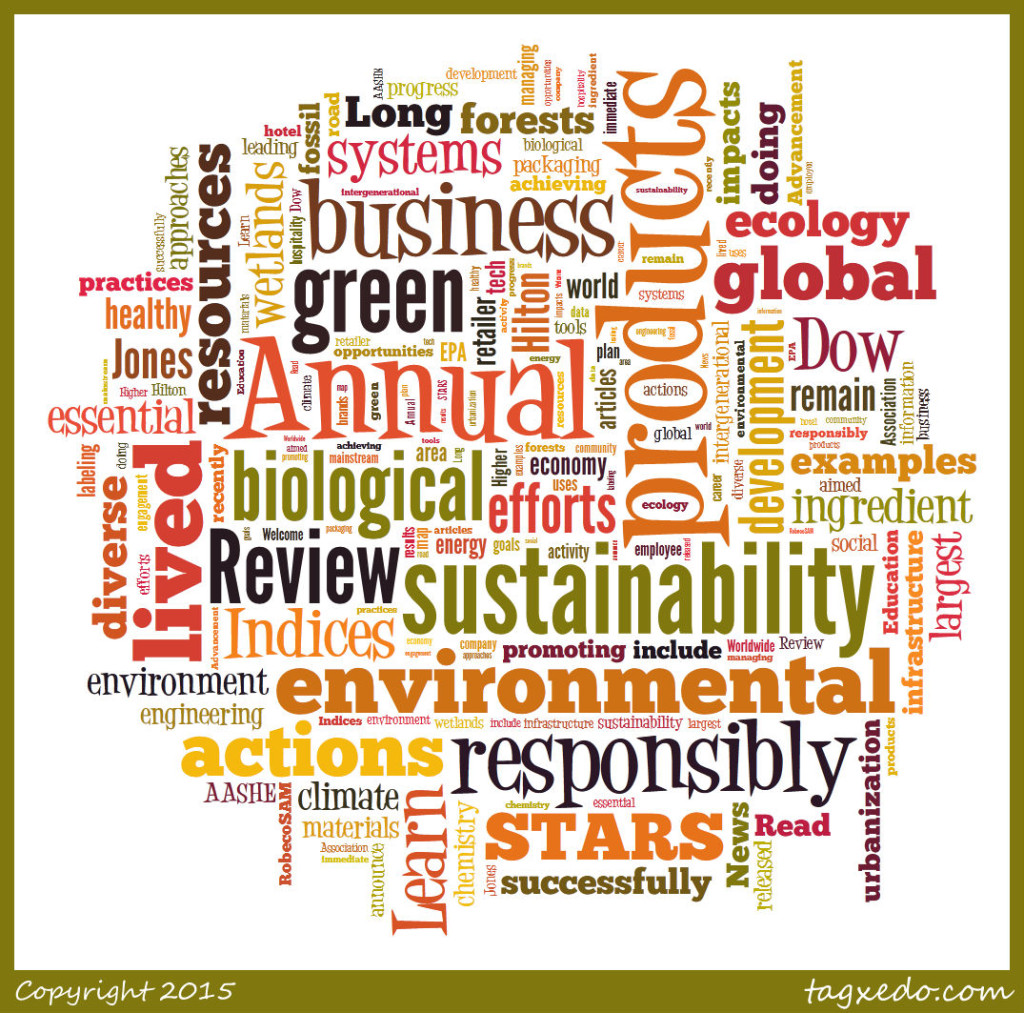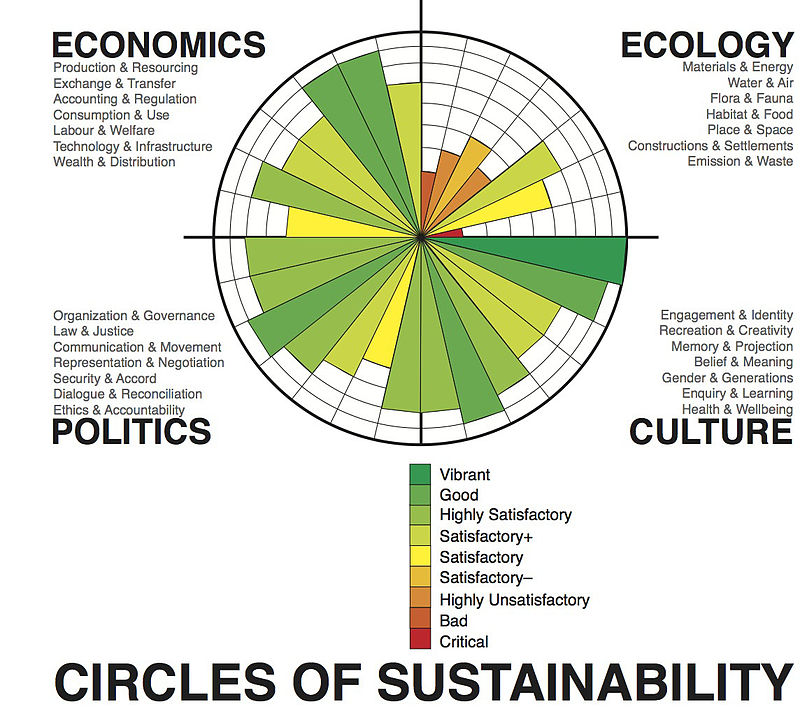
Words have power…and the use of the word sustainability kinda sucks.
In this Green Dude episode, I talked to Green Diva Meg about why “sustainability” sucks. It’s probably not what you think. After listening, I hope you’ll read on for more…
Take the word sucks, as in the title of this post. Children get scolded over the use of that word every day. It’s a strong word, and here it clearly states there’s no ambiguity in what I think about the word sustainability. As used today, it sucks.
As a word in the English language, it has been around a very long time. The modern iteration of sustainability was first clearly defined in the 1987 report by the World Commission on Environment and Development entitled Our Common Future. Commonly referred to as the “Brundtland Report,” it defines sustainability as “the ability of society to meet its needs without harming the ability of future generations to meet their own.” Or something pretty close to that.
What does sustainability really mean?
As a concept, it rocks. Developing a global society that values and actively stewards a sense of intergenerational equity is a beautiful idea—a concept I strive to forward every day.
Over the years, that concept has been refined to include the Three Pillars, or Triple Bottom Line, of People, Planet, Profit.
The most recent model is the Circles of Sustainability. This concept is used by the United Nations to judge how well cities are performing across four areas, or circles, of sustainability: Economics, Ecology, Politics, and Culture. Each circle has seven broad categories for performance, the 28 categories have nine possible rating levels.
In the Culture circle, there is a category called Recreation & Creativity. In the circle Economics there is an Accounting & Regulation category. I can’t think of two more polar opposite pursuits.
I sometimes get referred to as a sustainability expert. I probably know more about astrophysics than I do about accounting and regulation. But astrophysics isn’t a category in any of the circles, while accounting is, and I’m certainly no more an expert on political accountability (Political circle) than I am on accounting. At best, I have true expertise in small portions of six or seven out of the 28 categories.
So can I rightfully be called a sustainability expert?
Herein lies my problem with the word. What the hell does it mean?
Wikipedia has a very well researched and referenced page on sustainability. Here’s a part of what it says about the scope of the word (emphasis mine):
The focus ranges from the total carrying capacity (sustainability) of planet Earth to the sustainability of economic sectors, ecosystems, countries, municipalities, neighborhoods, home gardens, individual lives, individual goods and services, occupations, lifestyles, behavior patterns and so on. In short, it can entail the full compass of biological and human activity or any part of it.
Take a second to reread that last sentence. There’s literally nothing we do that doesn’t play a part in sustainability.
Word Associations…
To further illustrate, here’s a tag cloud generated from the cool website Tagxedo. The site will build clouds from search results. Here’s what sustainability brought up:

Economy, resources, environment, manufacturing, actions… the Dow. It means something for everything.
Which is exactly why it sucks.
It’s a vanilla term whose use has become so broad as to be almost meaningless.
What’s the answer?
So what do we do? What’s our best option for making the concept of sustainability meaningful? What words do we turn to?
At a minimum, we should always use a qualifier with sustainability. The word itself is a vague concept. Make it meaningful by saying resource sustainability if you’re describing natural resources, or food system sustainability or supply chain sustainability or ecological sustainability or… you get the picture. If you can’t provide a word or phrase to qualify what type of sustainable concept you’re describing, you probably shouldn’t be talking about it.
There are plenty of other words out there that we can substitute, as well. Resiliency is a great concept that could certainly use wider adoption, so is biophilia, and so many others. Each of the myriad disciplines that have embraced the broad concept of sustainability have developed their own language to make it more meaningful. Let’s not be shy about using those words.
I have challenged myself to think more about the words I choose and to be bold in making what I write and say have meaning.
The right words make meaningful stories. Meaningful stories build strong ideals. Strong ideals develop into resilient cultures. Resilient cultures sustain themselves.
Bonus:
Listen to the latest Green Divas Radio Show podcast for more great green topics…
You can listen to the latest Green Divas Radio Show—and other green and healthy living podcasts—daily on GDGDRadio.com (or get the GDGD Radio app)!
[dynamic-sidebar id=’Custom Widget 2′]

Jordan
February 18, 2015 at 10:24 am
Great post! Unfortunately “sustainability” has become a big buzzword lately, taking away from a lot of meaningful discussions. You’ve got a great solution in this post. Thanks for sharing!
Pingback: Woody Harrelson Answers "What Does Sustainability Mean To You?" | Care2 Healthy Living